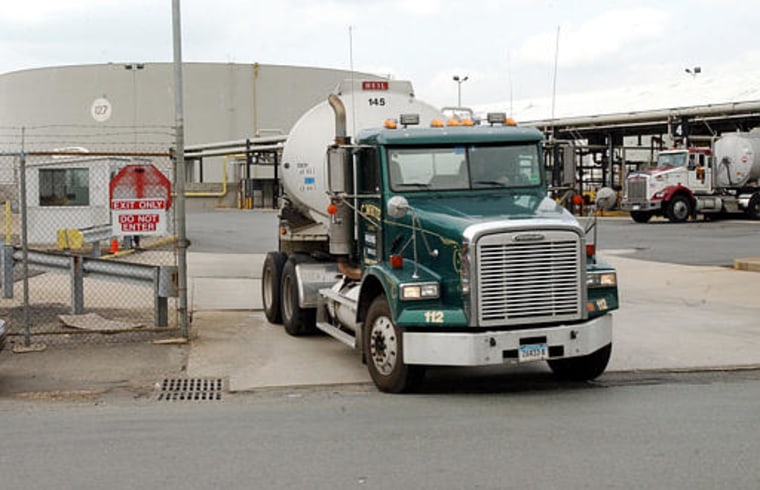Oil prices fell as much as $1 per barrel Friday after Saudi Arabia said it will pump an additional 500,000 barrels of crude per day beginning in June. The Saudi Oil minister also said he would push OPEC to raise its daily production quota by 2 million barrels, or 8.5 percent, in order to calm jittery energy markets.
However, analysts said the Saudi plan would have little immediate effect on gasoline prices in the United States, where motorists are paying more than $2 a gallon, on average.
"It will take 45 days for the additional crude to make its way to the U.S. and by then it's mid July and the gasoline season is already over," said Tom Bentz, an analyst at BNP Paribas Commodity Futures in New York.
However, "the markets have to respect that the Saudis are trying to make a stand to prevent the prices from rising further," Bentz said.
Citing concerns about the negative impact the high price of oil could have on the global economy, the world's largest petroleum producer said Friday that it intends to propose the higher output level on Saturday, when several members of the Organization of Petroleum Exporting Countries gather informally at an industry conference in Amsterdam.
The news sent energy futures tumbling.
The price of light crude for July delivery on the New York Mercantile Exchange dropped as low as $39.65 per barrel on Friday, before settling at $39.93, a decline of 87 cents. Since hitting an all-time high of $41.85 on Monday, crude has fallen nearly $2 or 5 percent amid rising expectations OPEC will raise production. June unleaded gasoline was down 3.34 cents per gallon at $1.4168 on Friday.
In London, Brent crude settled at $36.51, down 75 cents on the International Petroleum Exchange.
The Saudi Oil Ministry said in a statement attributed to Naimi that the country had already pledged to increase its production to around 9 million barrels per day as of June 1. The Saudi government is currently believed to be producing 8.4-8.6 million barrels a day.
The statement, issued in Amsterdam Friday morning, also said that "recent revisions in oil demand and supply projections for the coming months point to an increase in the required production from OPEC by an excess of 2.0 million barrels per day."
The statement went beyond a proposal made early last week, when Naimi said OPEC, which formally meets on June 3, should approve a bump up in its production quota that "not be less than 1.5 million barrels a day."
The cartel's official production quota is at 23.5 million barrels per day, but analysts believe OPEC members are producing, or "cheating," in excess of 2.3 million barrels a day above their current quota.
By raising the output quota OPEC members with excess capacity, such as Kuwait, the United Arab Emirates and Saudi Arabia, could cheat even more, analysts said.
Just how much remains to be seen. "I question how much additional crude will come out of any agreement," said Bentz, noting that most OPEC members have no spare capacity and might be loathe to accept a deal that only benefits the biggest players.
The Emirates oil minister said Tuesday OPEC should increase its production to match global oil demand, but he declined to give a number or specifically back the Saudi proposal.
In a conference call with journalists later in the day, Saudi foreign policy adviser Adel al-Jubeir signaled his country's willingness to commit even more oil to customers if 9 million barrels per day is still not enough. "Nobody is going to be turned back if they want crude," al-Jubeir said.
"The price of oil should be at moderate levels so that consumers are not hurt and producers are not hurt," he added.
In addition to the lack of supply, Al-Jubeir blamed the high price of oil on "massive" price speculation by hedge-funds, terrorism fears and a shortage of refining capacity in the United States.
In other trading on Nymex, June heating oil futures fell 3.11 cents to 99.60 cents per gallon and natural gas for June delivery settled 2.9 cents higher at $6.353 per 1,000 cubic feet.
